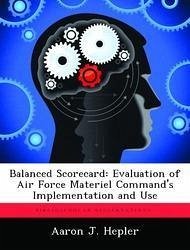Managing in a contemporary world has become increasingly more complex. It has evolved from a manufacturing setting with little to steer managers but a single, financial indicator to managing a greater percentage of intangible assets through numerous leading and lagging indicators. The industry has also evolved from centrally located and managed to decentralized, multi-national companies. In response to these changes, a new strategic management tool was developed called the Balanced Scorecard (BSC). This management tool has proved extremely successful throughout the last decade. In 2001, Air Force Materiel Command (AFMC) implemented a Balanced Scorecard (BSC). The purpose of this research was to evaluate the implementation and use of AFMC's BSC. To guide this effort, both meta-synthesis and historical methodologies were employed. First, a meta-synthesis approach was used to synthesize qualitative BSC data that resulted in eleven keys to successful BSC implementation and use. Secondly, an historical methodology was employed to review AFMC's BSC history within each of these key areas. Once the literature and AFMC's history were compared, perceived gaps were identified and recommendations provided. Finally, the significance of the research and recommendations for future research were also provided.
Hinweis: Dieser Artikel kann nur an eine deutsche Lieferadresse ausgeliefert werden.
Hinweis: Dieser Artikel kann nur an eine deutsche Lieferadresse ausgeliefert werden.








